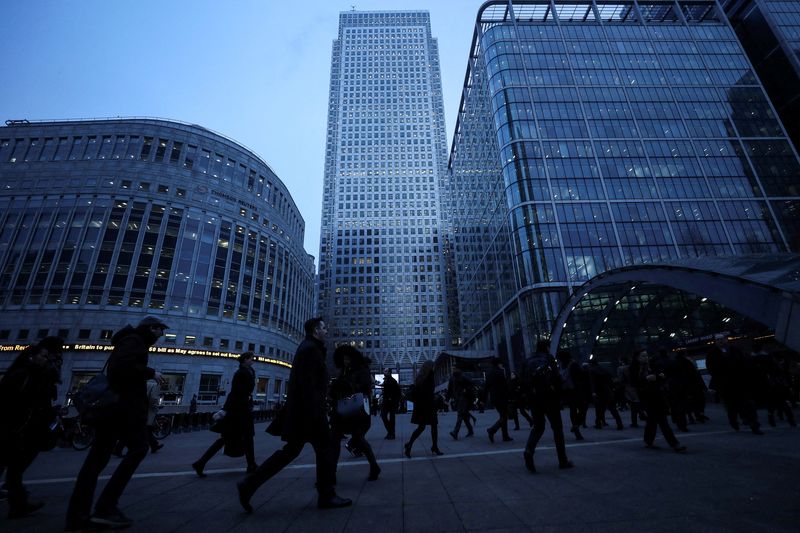By David Milliken
LONDON (Reuters) - Britain's services sector picked up sooner than expected last month after a big hit from the Omicron wave of COVID-19 cases, but record price rises are likely to alarm the Bank of England, which is expected to raise interest rates later on Thursday.
The IHS Markit/CIPS Purchasing Manager's Index (PMI) rose to 54.1 in January from December's 10-month low of 53.6 - in contrast to an earlier flash estimate based on data from the further half of January which showed the index down at 53.3.
"Demand has started to recover from the impact of Omicron restrictions and most businesses expect only a temporary slowdown from cancelled bookings and staff absences at the turn of the year," IHS Markit economics director Tim Moore said.
Hospitality firms in particular suffered a slump in sales over the Christmas and New Year period.
The broader composite PMI, which includes Tuesday's stronger-than-expected manufacturing PMI, rose to 54.2 in January from 53.6.
Readings over 50 show a majority of firms reported growth, although many economists think Britain's economy as a whole is likely to have shrunk slightly in December and January due to reduced socialising and staff absence caused by COVID.
However, the PMI indicated that businesses were upbeat about 2022.
"Growth expectations for the next 12 months picked up in January and are now the highest since last spring, with staff recruitment difficulties often the only major source of anxiety," Moore said.
Official data showed a record number of job vacancies in the final quarter of 2021 with worker shortages more than 50% higher than before the pandemic.
Services businesses' costs rose at the second-fastest rate on record in January - reflecting higher wages, logistics costs, greater energy bills and pricier raw materials - and these expenses were all passed on to consumers. Prices charged rose by the most since the PMI series began in July 1996.
This will feed the BoE's concern that rising consumer price inflation, which hit its highest in nearly 30 years at 5.4% in December, will be slow to fall even once immediate drivers such as energy costs stop rising.

The BoE has seen signs in its own surveys that businesses might raise pay at rates that are inconsistent with its 2% inflation target this year.
But most pay settlements so far are well below the current rate of inflation - bringing real-terms pay cuts for workers which many economists think will slow growth and push down inflation.